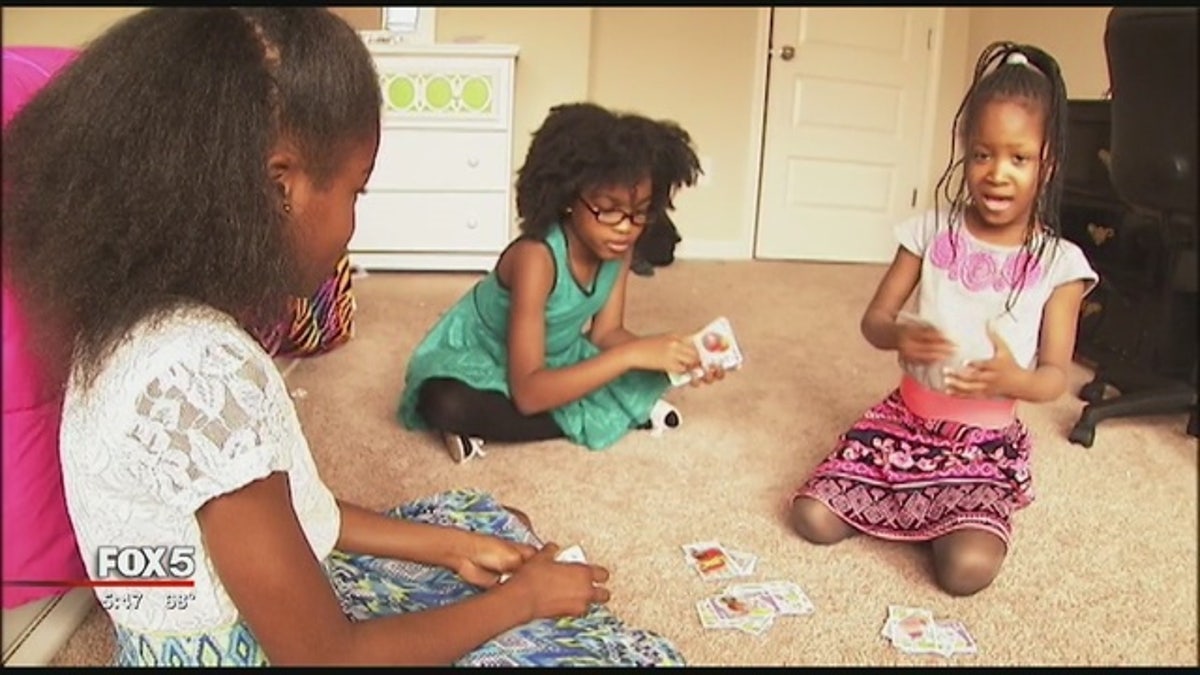
(Photo courtesy Fox 5 Altanta)
The Tyler sisters, of Hampton, Ga., are close in age, but the childhoods they’ve led aren’t typical for that of an 11-, 10- and 6-year-old.
The sisters— Amatullah, Khadeejah, and Hajar— all struggle with sickle cell anemia, an inherited, incurable blood disorder that cause red blood cells to malform and break down, Fox 5 Atlanta reported. According to the Mayo Clinic, fewer than 200,000 people are diagnosed with the rare condition in the United States each year.
As the girls have grown up together, with Amatullah leading the pack as the eldest, they have learned to make sense of the disease they live with as they have undergone treatment.
Khadeejah, the middle sister, explains sickle cell causes her red blood cells to get stuck, the news station reported.
"So when they're passing by each other, it's easy for them to get caught together,” Khadeejah told Fox5Atlanta.com. “And it's hard for the other cells to go through."
When the blood vessels get stuck, she explained, the pain hits her “everywhere,” and it’s “very bad.” She also suffered a seizure when she was 7.
For Khadeejah, sickle cell requires monthly blood transfusions and led doctors to implant a central line in her body.
Her sisters take daily medication, but Hajar has so far been mostly asymptomatic, Fox5Atlanta.com reported. According to the National Institutes of Health (NIH), symptoms of sickle cell include fatigue or fussiness, yellowed skin or whites of the eyes, as well as painful swelling of the hands and feet.
Mapillar Dahn, their mother, told the news station that suffering from the disease has made her children more aware— a fact she said is on purpose.
“I want them to know what they have,” Dahn told Fox5Atlanta.com. “Life is not guaranteed for anybody. Mommy is not always going to be here. I need them to be able to take care of themselves like Mommy is taking care of them."
To further promote awareness of sickle cell, Dahn has founded MTS Sickle Cell Foundation, a nonprofit that aims to educate others and offer support to individuals suffering from the disease.
